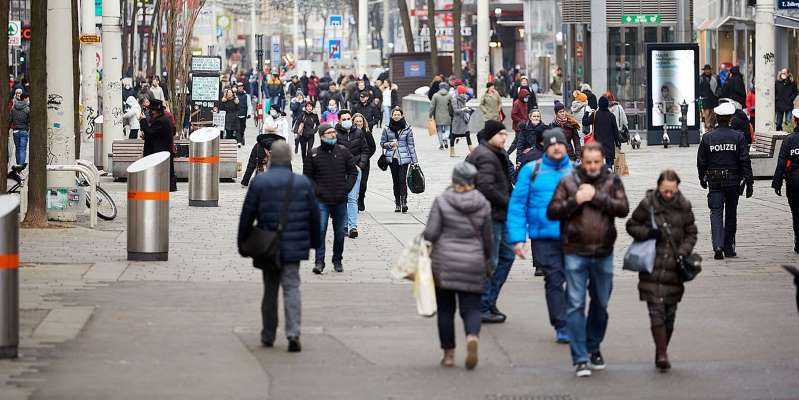Shops in Austria are allowed to reopen from February 8, subject to strict conditions. The trade welcomes the decision and is prepared.
At a press conference on Monday, the federal government announced the end of the third hard lockdown and the gradual opening of trade and body-related services from next Monday, February 8th. Gastronomy and hotels, however, will remain closed until further notice.
“We welcome today's decision by the federal government to reopen the retail trade from February 8, subject to certain conditions. This will help domestic retailers to help themselves after almost a third of retailers are currently affected by insolvency. 22,500 closed stores with a total sales area of more More than 9 million m² can finally unlock again from next week. The health of customers and employees is the top priority. Our dealers have implemented extensive hygiene measures for this purpose to enable orderly unlocking and safe shopping, “says Handelsverband CEO Rainer Will in an initial opinion.
The trade association had campaigned for a reopening of trade from February 8, in talks with the federal government and also through the online petition #arbeitsplätzeretten. More than 6,700 supporters from trade, commerce, industry and private households have already signed the petition at www.arbeitsplaetzeretten.at. Fortunately, the federal government included the AGM proposals for equalizing customer flows in today's decision, which made it possible to open as planned on Monday.
The authorities stipulate, among other things, a customer limit (1 customer per 20 m2) to prevent large gatherings of people in shops and shopping centers, strict compliance with the distance rules (at least two meters) and the mandatory wearing of an FFP2 mask.
Any concerns that the reopening of the shops could drive the number of corona cases up have now been refuted by various scientific studies. “The trade is not a Corona hotspot, the length of stay is too short and the customer contact too loose. The AGES investigations also did not show any cluster formation in the shops, the infection process takes place in private households,” said Rainer Will convinced.
The federal government is thus taking up the trade association's motto “Living and doing business with the virus” in order to somewhat curb the billions in collateral damage to jobs. But the psychosocial consequences that come with every lockdown must not be ignored. Without gastronomy, it is a return to the “lockdown light” which will continue to bring Austrian retailers around 250 million euros in weekly sales losses.
“The vast majority of people have adhered to the Corona measures, for which we would like to express our thanks. With the reopening announced today, the population will also be given back a piece of freedom. This means that part of life is moving back from the private to the public sector relocated, “says Will.
“The extension of the lockdown for the hotel and catering industry naturally has a strong negative impact on customer footfall and thus also on retail sales. Many businesses, such as the entire food wholesaling sector, have lost and recorded their most important customers with the closure of the catering and hotel sectors In some cases massive slumps in sales. These companies indirectly affected by the lockdown have been waiting for months for the corresponding directive and thus for the payment of the corona aid “, demands Rainer Will.
The trade association assumes that domestic consumers will take the opportunity to finally exchange numerous Christmas gifts, as well as redeem vouchers and monetary gifts. The catch-up effects will generally be less than a third, as the lockdown duration was a very long one with 34 shopping days lost in the phase of the year with the highest turnover.
“In the medium term, a 'climate of confidence' is needed to stimulate the bad consumer sentiment and thus also the economic process with more than 600,000 employees in domestic retail alone. The rapidly rising savings rate of almost 15 percent is a memorial to this development and endangers hundreds of thousands of jobs “, says trade spokesman Rainer Will.

